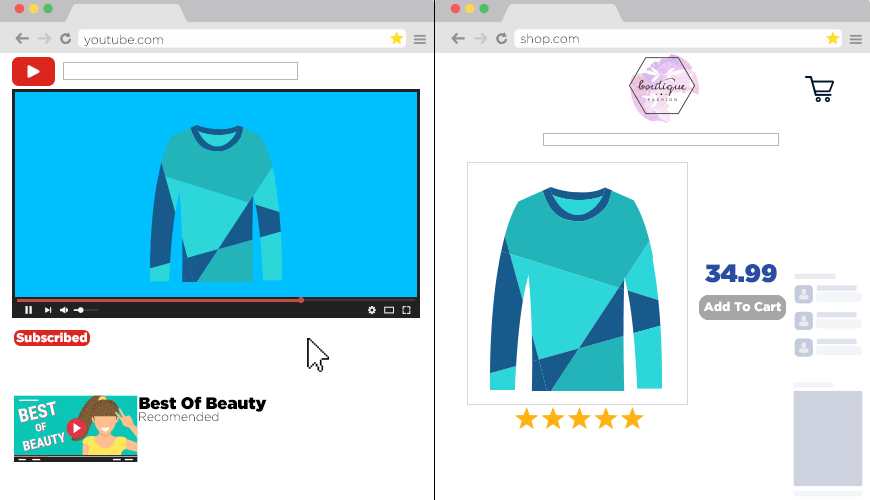It’s no surprise that YouTube has profoundly affected two generations. Millennials who came of age during its rise, and Gen Z who have now figured out how to use the platform to its fullest potential—while make a living doing it.
This is especially true for Gen Zers in the fashion industry.For them, YouTube is their version of Vogue magazine. They watch videos to see what they should buy.
The big difference is that they’re not watching videos from the fashion brands. The people wearing the clothes aren’t models, and the videos aren’t commercials. Instead, they’re videos from influencers—real people who genuinely like and wear the products they recommend.
Gen Z distrusts marketing
Gen Z has an inherent distrust for advertising and marketing. With their smartphones in their pockets, they’re the most marketed to generation — most apps even have sponsored content.
This is also a boon for the Gen Zers who are the influencers. Take Erica Louie, a YouTuber who goes by Miss Louie. Her full-time job is making fashion recommendations via YouTube videos…and she has a six-figure salary from it!
In her words: “So I’ll literally turn on both cameras, stand in front of the white backdrop, and then model clothes, and then change out, and then just do it over and over again for hours.”
A new way for Gen Z to make money
So how does she make money? NPR investigated. Let’s say you like the jacket she’s wearing in a video. You can click on a link in the video description, which directs you to the retailer’s site, and for every jacket that’s sold, Louie gets a percentage from the cart total.
This might seem simple, but Louie reportedly works 50-60 hours per week, and uses her own money to buy the clothes she wears in her video. Her revenue is completely dependent on whether people buy the clothes she suggests!
What’s the takeaway for fashion brands?
The most important thing for Gen Z is that Louie is not beholden to any one company; she recommends items that she genuinely likes. Rhea Park, a Gen Z journalist for NPR, writes: “That freedom and customization is refreshing to Gen Zers like me. We are more interested in connecting with real people than with companies.”
For fashion brands that means:
- Traditional marketing tactics, such as models in a magazine, aren’t as likely to reach Gen Z in an era of YouTube video.
- Gen Z wants a more personalized experience with fashion that speaks to their individual preferences.
- It’s essential to understand where and how Gen Z interacts with your brand in order to stay current in today’s market.
Do have a generational challenge with sales, marketing, strategy, or employment that you want solved? Contact us. Our talent is driving measurable results across generations. Email us here if you’d like a little info on our customized generational speaking, research, and consulting.
Interested in more cool stats, facts, and insights for bridging generations? Follow us on @GenHQ and @JasonDorsey. We are passionate about sharing our latest generational discoveries.

